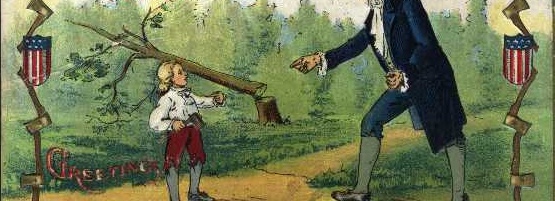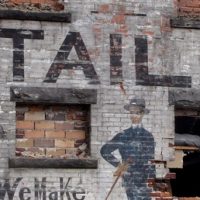The stories we tell ourselves are importants tool in deciding who we are. We try them on, keeping some, and casting others away. The decisions, and inevitable rebuffs, that create that image may, in fact, be central to the process of determining who we really are This is true for humans and all human endeavors. Whether it’s is a tribe, a country, or a company, the stories we tell each other, from Beowulf to Briar Rabbit, all speak to how we see ourselves and almost always have layered meanings.
Take, for instance, the tale of George Washington and the cherry tree. In the tale, George Washington ‘cannot tell a lie’ and that is central to the story. The idea is that the founding father of the United States was an honest man and, maybe, this integrity is central to the American character.
But equally important to note is that the Washington of the story doesn’t tell the truth until confronted by a father that (as any parent will attest) most likely already knew who damaged his property. Which brings us to the question, did Washington tell the truth because of innate righteousness? Or because he was practical enough to see that lying would only result in more trouble? Both interpretations are entirely valid. And perhaps both are true.
Like all things of human nature the stories we tell ourselves have a duality that are not always evident upon cursory examination.
See the author’s published work here.
Related Posts
The American: Chapter 37 Next Post:
The American: Chapter 38
























